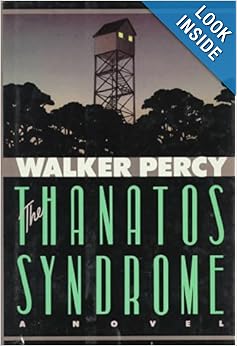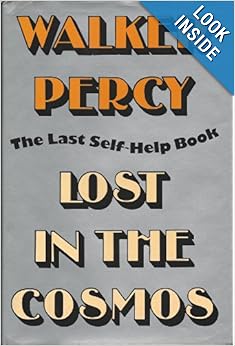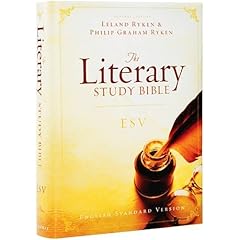A couple of months ago Eldest Daughter asked if I would like to accompany her to an academic conference in New Orleans in October. New Orleans in October with Eldest Daughter who is one of my favorite persons? Of course, I would love to go. Then, she told me the subject of the conference, “Still Lost in the Cosmos: Walker Percy & the 21st Century.”
 Now I am not a fan, really, of Mr. Percy’s fiction. I say that, having read one, maybe two, books by Percy, The Moviegoer and another book long ago that I think was The Thanatos Syndrome. I remember people in trees(?) or sitting on flagpoles and something about poisoning the water supply and a priest and a doctor. It sounds like the beginning of a bad joke, and unfortunately that’s all I remember of the novel. The Moviegoer I read more recently, and according to Eldest Daughter herself, who is a fan, I just didn’t get it. I concur: I didn’t get it. The main character, Binx Bolling, was the kind of person who, if I were to meet him, I would feel strongly impelled to shake until he spits, as my mother would say. Existentialists (Percy had a thing for Kierkegaard) affect me that way, oddly enough.
Now I am not a fan, really, of Mr. Percy’s fiction. I say that, having read one, maybe two, books by Percy, The Moviegoer and another book long ago that I think was The Thanatos Syndrome. I remember people in trees(?) or sitting on flagpoles and something about poisoning the water supply and a priest and a doctor. It sounds like the beginning of a bad joke, and unfortunately that’s all I remember of the novel. The Moviegoer I read more recently, and according to Eldest Daughter herself, who is a fan, I just didn’t get it. I concur: I didn’t get it. The main character, Binx Bolling, was the kind of person who, if I were to meet him, I would feel strongly impelled to shake until he spits, as my mother would say. Existentialists (Percy had a thing for Kierkegaard) affect me that way, oddly enough.
Still I am a fan of Eldest Daughter and of a trip to New Orleans, and I like to feel as if I know what people are talking about when I listen to them speak. So in preparation for the conference I began reading Mr. Percy’s book, Lost in the Cosmos: The Last Self-Help Book. Lost in the Cosmos is not a novel, but rather a parody of the myriad of self-help books that tell us that we can categorize our angst and work it out in six easy steps or by repeating one mantra or by listening to the author who will tell us who we really are. The first part of the book is really quite clever as Percy gets the reader first to admit that “it [is] possible to learn more in ten minutes about the Crab Nebula in Taurus, which is 6,000 light-years away, than you presently know about yourself, even though you’ve been stuck with yourself all your life.” Then, through a series of “thought experiments”, Percy leads his readers to recognize the existential lostness that afflicts each of us: we are indeed lost in the cosmos.
 So far, so clever. In the middle of the book, however, Percy stops for an extended tour of the science of semiotics, a word I had to look up in my handy, dandy dictionary. Semiotics is “the study of signs and symbols, and their use or interpretation.” (Clear as mud? No? You obviously need to undertake a serious study of semiotics.) This part of the book is called “A Semiotic Primer on the Self.” The print becomes much smaller, and the text much, much more dense. Diagrams are inserted, and footnotes abound. Percy himself writes, “The following section, an intermezzo of some forty pages, can be skipped without fatal consequences.” I skipped. Not only did I skip, I also skipped out and never managed to finish Lost in the Cosmos before the conference in New Orleans. The consequences were not fatal, but perhaps were an inhibition to my understanding of the presenters at the conference.
So far, so clever. In the middle of the book, however, Percy stops for an extended tour of the science of semiotics, a word I had to look up in my handy, dandy dictionary. Semiotics is “the study of signs and symbols, and their use or interpretation.” (Clear as mud? No? You obviously need to undertake a serious study of semiotics.) This part of the book is called “A Semiotic Primer on the Self.” The print becomes much smaller, and the text much, much more dense. Diagrams are inserted, and footnotes abound. Percy himself writes, “The following section, an intermezzo of some forty pages, can be skipped without fatal consequences.” I skipped. Not only did I skip, I also skipped out and never managed to finish Lost in the Cosmos before the conference in New Orleans. The consequences were not fatal, but perhaps were an inhibition to my understanding of the presenters at the conference.
So, there you have a synopsis of my preparation for the Walker Percy conference at Loyola University in New Orleans. My preliminary studies were inadequate at best. However, I went with the expectation that I would be enriched and challenged by the conference speakers and satiated and enlivened by the food and sights of New Orleans. And Eldest Daughter is still one of my favorite people, even if she does understand Walker Percy when I do not.
Tomorrow, read part 2, Amnesia, Moby Dick, Gulliver’s Travels, and the Shadow of Catastrophe, or How to Title an Academic Paper on Walker Percy.




